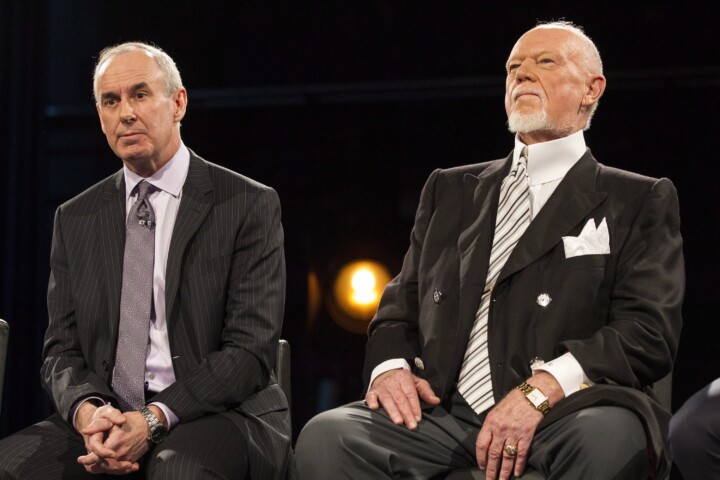In the latest Hub book review Patrick Luciani unpacks The Canceling of the American Mind by Gregg Lukianoff and Rikki Schlott (Simon & Schuster, 2023) and provides his reflections on the state of university and college campuses today.
In a recent Harvard CAPS/ Harris poll, 84 percent of Americans sided more with Israel in the war with Hamas. When broken down by age, those between 18 and 24, 51 percent said historical Palestinian grievances justified the killings. Why the broad support for Hamas’s indiscriminate, murderous rampage by a cohort that only yesterday ran for cover at the slightest psychological trigger warning?
The first clue came in Allan Bloom’s 1987 best-selling book, The Closing of the American Mind. Where once the role of teachers was to protect students in their charge from the “deforming forces of convention and prejudice,” students are now left to their own devices to see and judge the world as they please. According to Bloom, educating the young is made all the more difficult when students come to university with two well-fortified beliefs: that truth is relative and that equality, however vaguely conceived, trumps all.
Seeing the world from that perspective, students hold that the real danger is someone without these fixed ideas that lead to wars, slavery, xenophobia, racism, and sexism. Students with this mindset argue against the very notion that historical mistakes can be corrected unless their perception of reality underpins them.
What bothered Bloom was that these beliefs weren’t arrived at with an understanding of history or enlightened thought; they just appeared without any doubt that they could be wrong. The problem is further compounded by a university administration tolerating and indulging their belief system. Rather than think hard about Bloom’s warning that little good can come from this pandering, we’ve reached the point where teaching and education are no longer the prime roles of higher learning but rather are accommodations.
Almost thirty years later, and honouring Allan Bloom’s foresight, Jonathon Haidt and Greg Lukianoff wrote The Coddling of the American Mind, reinforcing the problems Bloom articulated in the 80s. Not only have students come to class with preconceived ideas of truth, justice and fairness, but by the time they graduate, they’ve deepened those ideas with three untruths: that what doesn’t kill you will make you weaker, that feelings are superior to evidence and science, and that the real battle is between good people and evil people. Haidt and Lukianoff have exposed that elite schools—and here I include those in Canada as well—have become breeding grounds for what they euphemistically call “unhelpful worldviews.”
The last book in the American Mind triptych is the recently published The Canceling of the American Mind, by Greg Lukianoff and Rikki Schlott, who follow the logical progression and conclusion of the first two books: that free speech and open minds are a danger to be avoided at all costs. Added to the three untruths listed above is the fourth, “that only bad people have bad opinions,” with the apparent conclusion that all ideas mustn’t be engaged with tolerance, respect, or debate.
Too many students, particularly in the humanities, social sciences, and the arts, believe history and the ancients have little to teach them. Instead, they turn to radical thinkers such as Frantz Fanon and Herbert Marcuse, once darlings of the 60s and 70s radical movements popular in political theory classes.
Fanon glorifies the attributes of supreme violence against colonial oppressors by the oppressed as the only way to cleanse and retrieve their dignity. He writes, “Life for the native can only spring up again out of the rotting corpse of the settler.” At the same time, Marcuse teaches that free speech is too precious a gift that only the righteous can exercise while denying it to those who think otherwise. He is the inspiration for “canceling” anyone following the principle that evil thoughts come only from bad people.

Lukianoff and Schlott trace the rise of cancel culture from 2014 when canceling appeared uncontrolled in academia, the media, and the sciences if anyone put a political foot wrong, all supercharged by easy access to social media. Academic cancellations in the U.S. now outnumber professors fired during the red scare in the McCarthy years.
But something has changed since October 7. Student reaction, mainly from elite schools throughout the U.S. and Canada, was shocking enough, but the collective reluctance of their administrators to identify real evil is worse. Part of the answer was fear of committing themselves and watching how the political winds blew. They were trapped in revising their anodyne statements as the opprobrium flowed in.
But it may be too late. The backlash has already started at Ivy League Schools as donors demur and elite Canadian schools feel the pushback. Some law firms have threatened not to hire Toronto Metropolitan University Law School graduates after 74 students posted a letter supporting Hamas. Schools will also suffer the consequences as their alumni close their wallets. Schools of higher education have quickly discovered that cancel culture is a two-way street.
Recommended for You

Sean Speer: Maybe Ron MacLean is the one who needs to go

Falice Chin: A tale of two (Poilievre) ridings

Evan Menzies: Calgary at 150: Why is it so hard to celebrate our history?

‘We’re winning the battle of ideas’: Conservative MP Aaron Gunn on young men moving right, the fall of ‘wokeness,’ and the unraveling of Canadian identity




